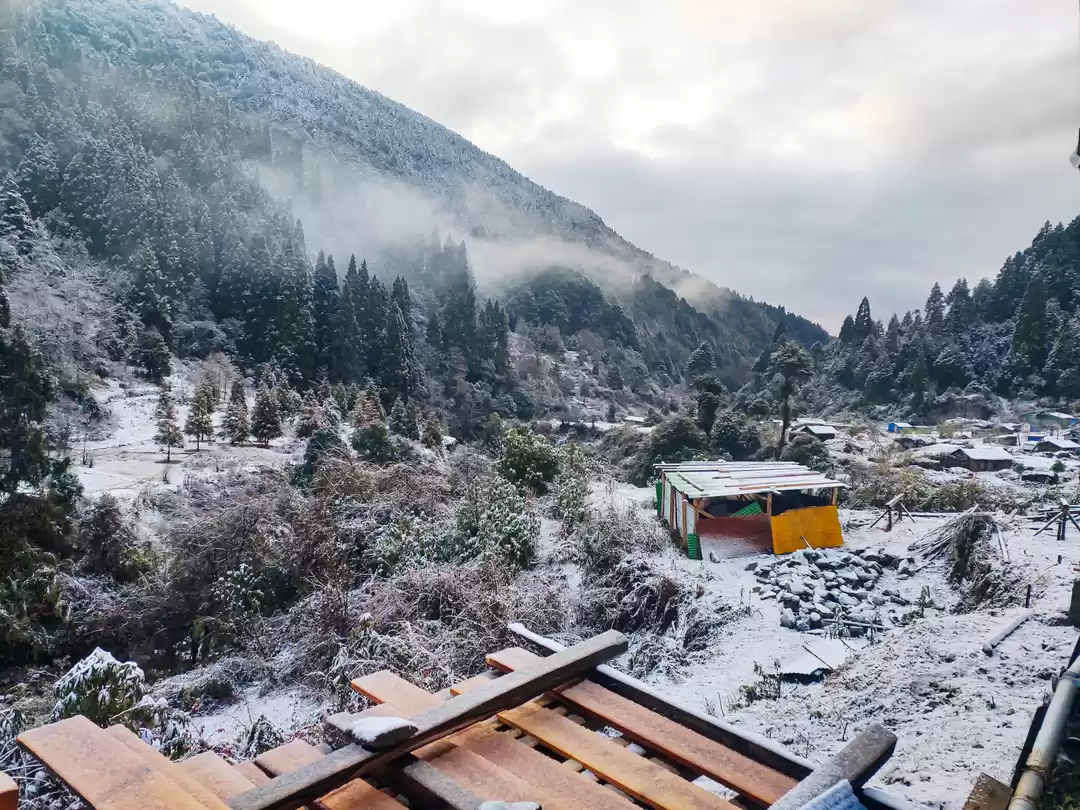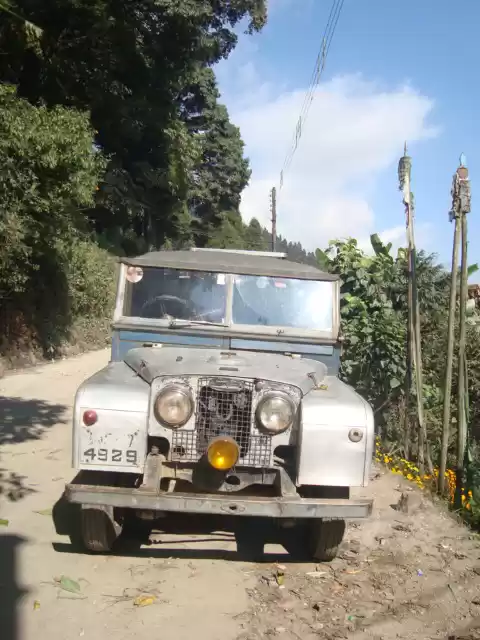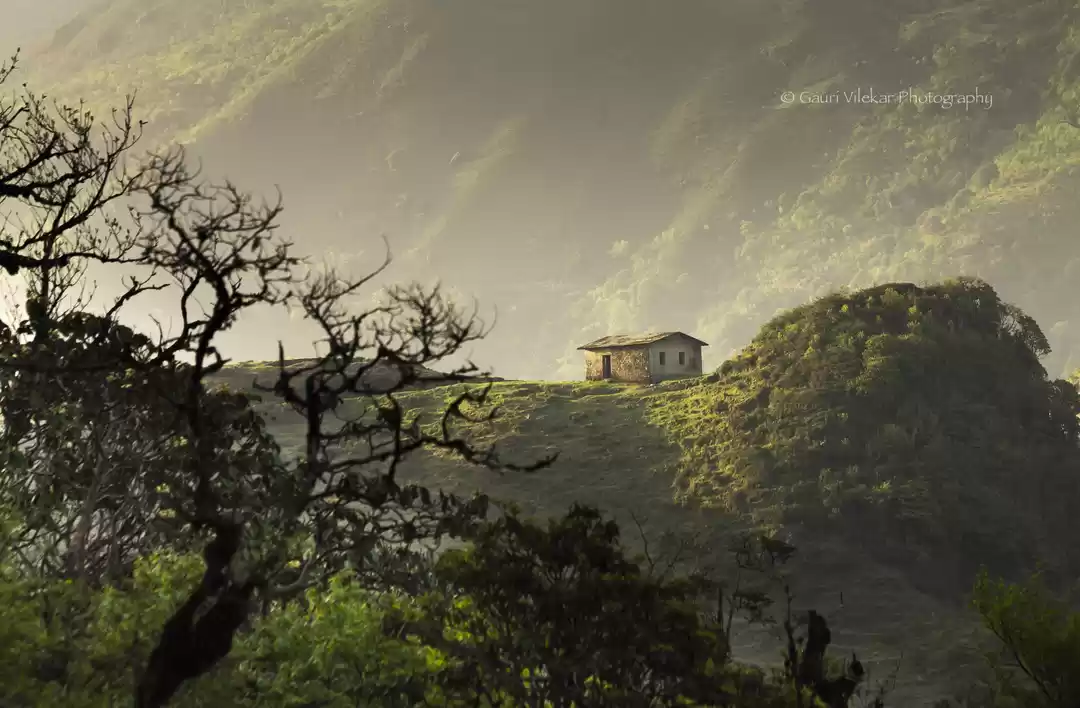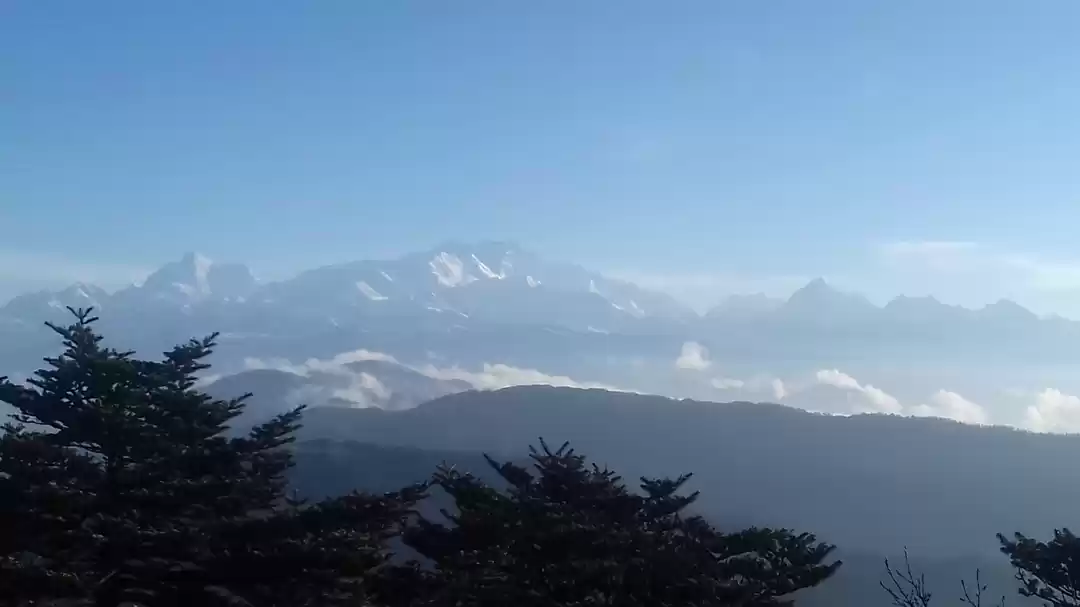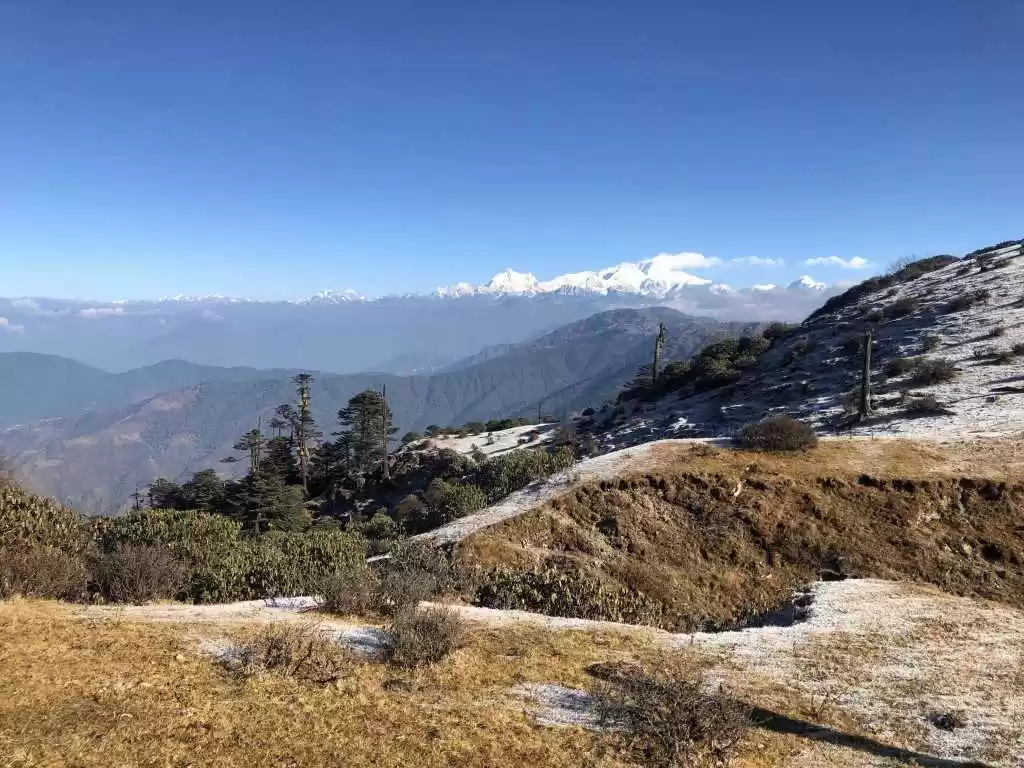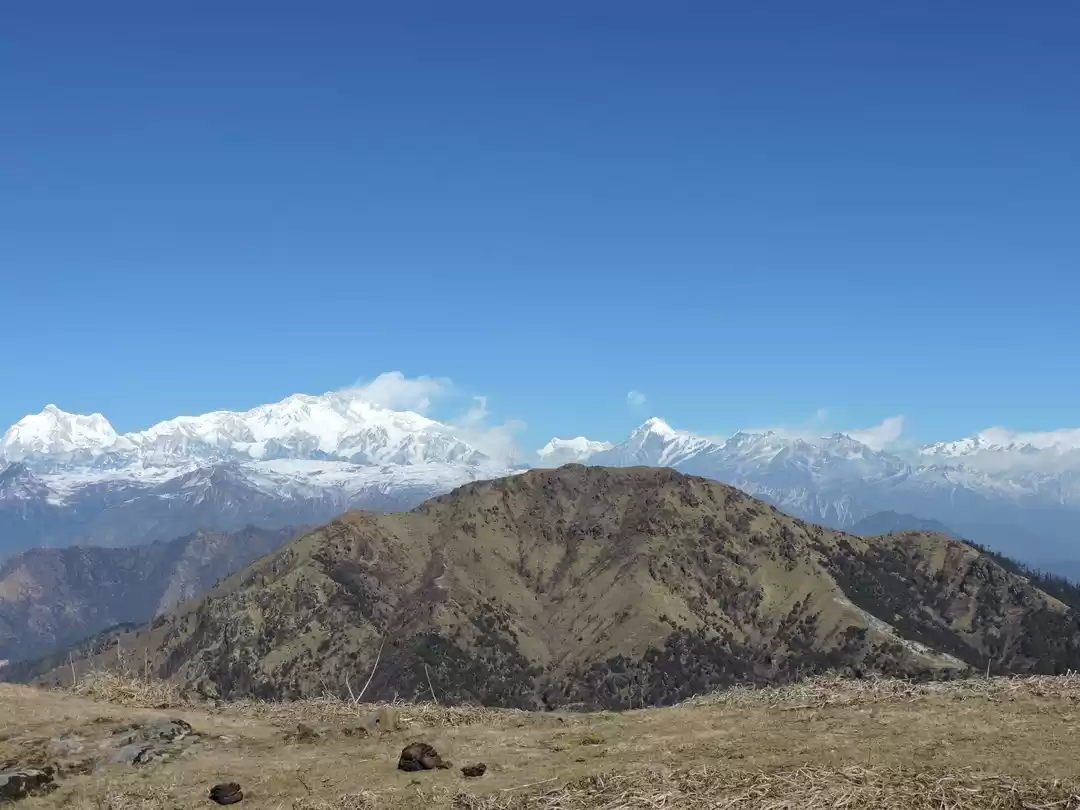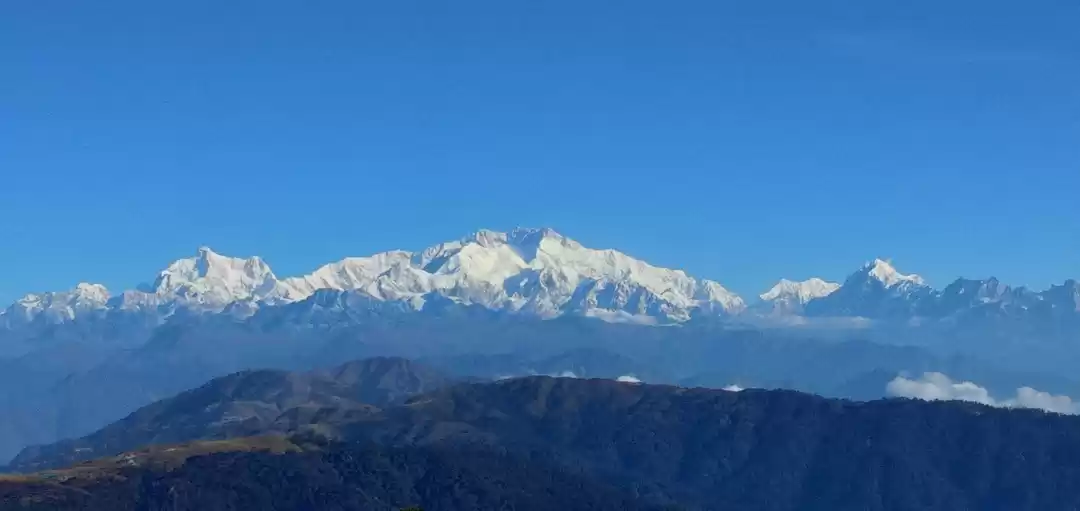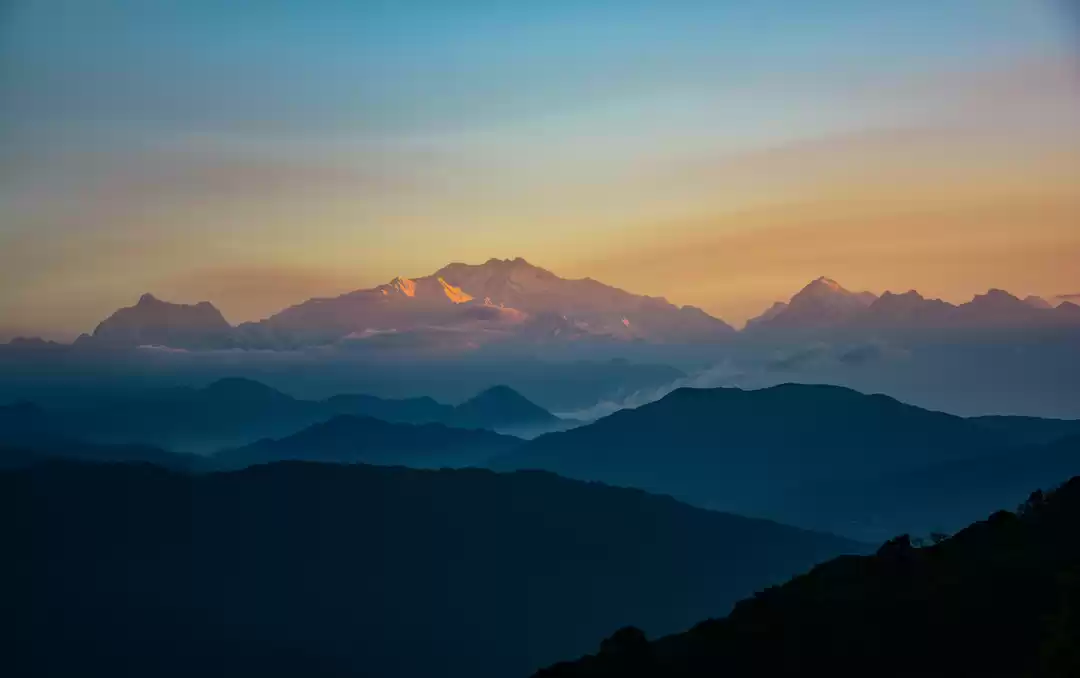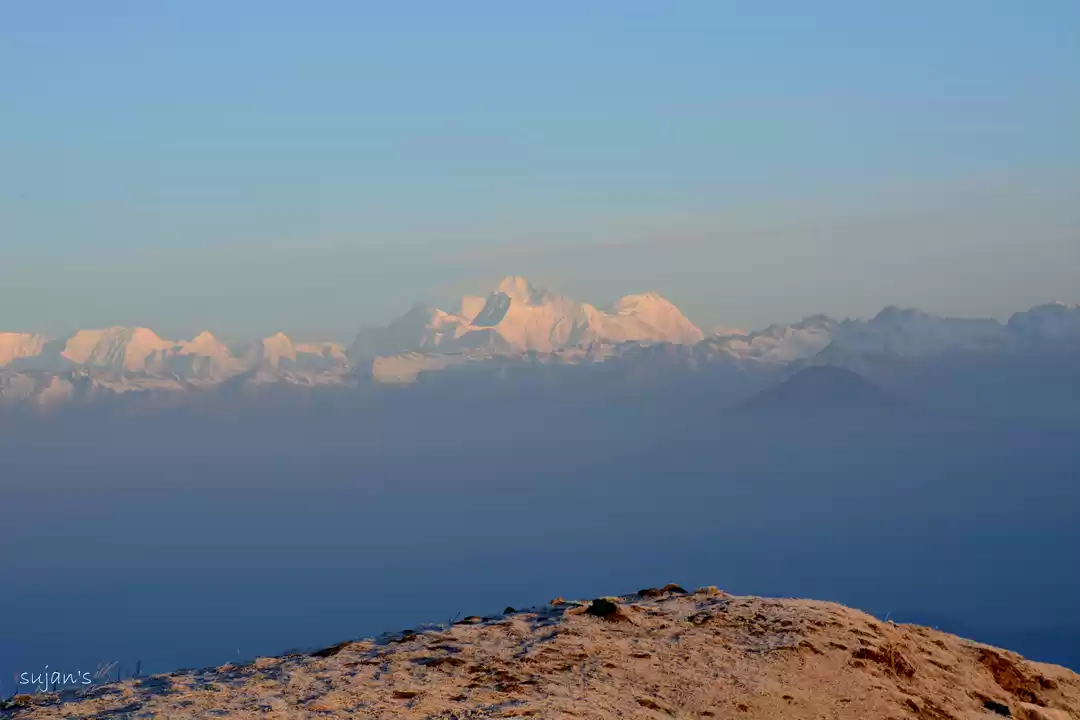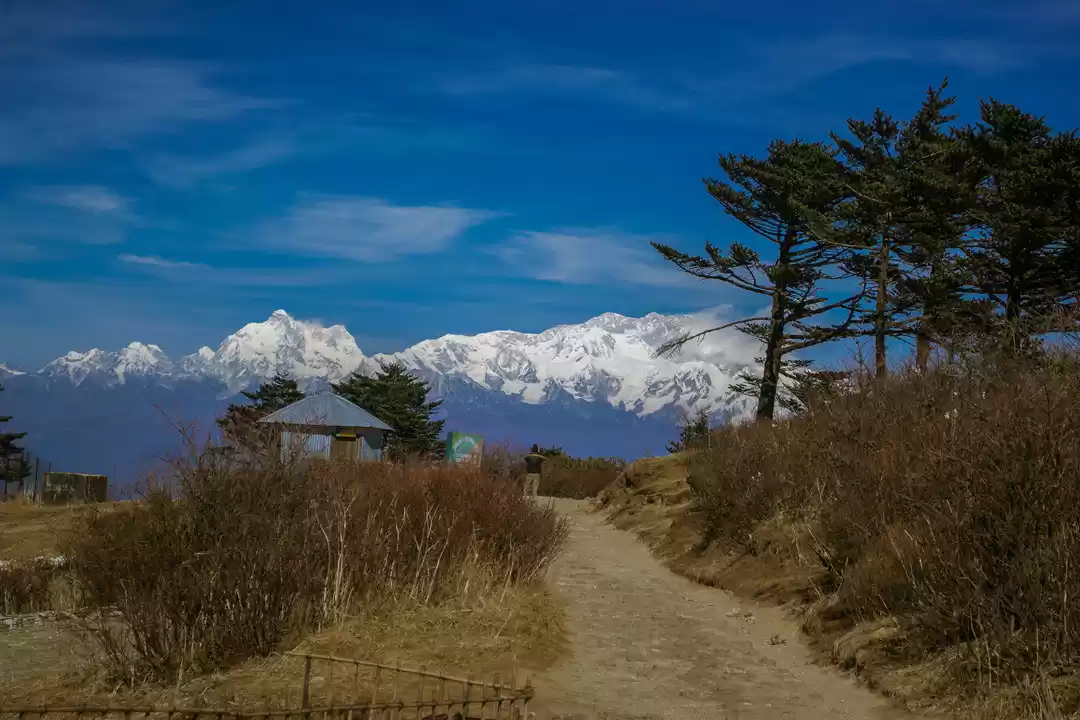9k per head, excluding Darjeeling stay
Trekking to the Sandakphu-Phalut trail is the most common and popular trek amongst Bengali and Indian trek lovers. The trail is extremely beautiful and offers the ethereal view of Kanchenjunga and other peaks, most commonly called the 'Sleeping Buddha'.
We did the trek back in January 2017. The winter was harsh up there, but the sky was as clear as crystal. Therefore, we had a lifetime opportunity to view the 'Sleeping Buddha' right from our starting point at Dhotrey.
In this blog, I'll share our trek descriptions through the photographs we took on our way.
Day 1: Drive to Dhotrey – Night stay
From a not-so-chilly Kolkata, we landed up in New Jalpaiguri Station on a train. As we waited for our cab, the cold winds brushed our faces. Our taxi took us to a remote hilly hamlet called Dhotrey, the starting point of our trek. Dhotrey is situated at a height of around 8500 ft above sea level. We put up in a trekkers' inn for the night. On that evening itself, we got our first glimpse of the Kanchenjunga peeping through the clear blue sky.


Early in the morning, we started our trek through the pine forests of Dhotrey. Our route was through the small picturesque hamlets of Tonglu, Tumling, Jaubari till Gairibas.

On seeing me huffing and puffing, our guide advised me to take one step at a time and one short breath at a time. The advice was pure gold. Though I could not keep with others' pace, I did not tire myself out either till I reached Gairibas. In Gairibas, we stayed in a trekkers' hut for the night. The night was extremely chilly. My body kept shaking until I wore four layers of warm clothes, two pairs of socks and got under two layers of woollen blankets.

Day 3: Gairibas to Sandakphu
We abandoned the boulder-laden trail to Sandakphu designed for the jeeps and took the natural one for cutting down our trekking time. We had to reach Sandahphu Trekkers’ Hut before the sunset. A few turns were quite steep. As we breathed out heavily with crossing each of the steep turns, we yearned more to view the sunset from Sandakphu top. Aah! What a molten gold the Sun was when it went down that day!
Day 4: Sandakphu to Phalut
Our day started with experiencing a marvellous sunrise at Sandakphu. The Sleeping Buddha blessed us with the first morning light. In fact, the beauty of the Sandakphu-Phalut trail is the Sleeping Buddha formation by the Kanchenjunga Peak and its family.

Most of the trekkers end up walking up to Sandakphu and back. But we, driven by the sheer desire of viewing the mighty peaks of the Himalayas, more closely walked 21 km of a barren and arid patch to reach Phalut.


This 21 km of the barren patch was an eye-opener in a literal sense, as it tested our endurance levels. I started to lose out energy which was regained only after the lunch break at Sabargram. The light was fading out, and we still had to walk 2.5 km to reach the Phalut Trekker's Hut. When we finally got to Phalut, our bodies gave up. Neither we could walk to our rooms, nor we had the energy to eat.
Day 5 and 6: Staying in Phalut
The first day at Phalut started brightly as we got the first clear and closer glimpse of "The Sleeping Buddha."

"The Sleeping Buddha" is formed by Mt. Kumbhakarna (the head of the Buddha), Mt. Kanchenjungha (the body), and Mt. Pandim (the feet).
We also caught bright glimpses of the three highest peaks of the Himalayas - Mt. Everest, Mt. Makalu, and Mt. Lhotse.

The two days we had spent in Phalut for acclimatization were sheer bliss. The Sun was bright, the sky as bluest as it can be and the pristine white peaks beckoning at a distance.
As the Sun decided to set in Phalut, it luxuriously draped the sky into all the hues it wanted. The Kanchenjunga family went yellow, golden, orange, red, and blue with absolute merriment. The scene left us visually awestruck. As we descended towards the hut, the stars came out to greet us. Yes, indeed, they looked like "diamonds in the jet-black sky."

Day 7: Phalut to Rammam
The most beautiful part of our walk was undoubtedly the trail via Samanden from Phalut to Rammam, a village 19 km down the hill. A small village, where we took an hour's rest and had lunch, known as Samanden, offered a gratifying and soothing view to our weary eyes. A green carpet of grass was spread all across the valley, and there were wood houses with colorful sloping roofs. The soft Sun baked us. We washed our bare feet and lazed about without our rucksacks.
The entire stretch is laid amidst the pine forests, and the breeze which pleasantly whizzed out from the trees calmed us throughout our tiresome journey.

We reached Rammam in the evening and rested for the day in a homestay. The best part of our stay in the homestay was the indigenous chulha with a regular refill of charcoal to warm us up and a dinner of humbly cooked chicken and rice. We were having a non-vegetarian meal after six days, so we were pretty elated.
Day 8: Rammam to Rimbik and then drive to Darjeeling
We started early on this day because of the undying excitement to reach Darjeeling to unwind the trek's exhaustion. Our route was through the dark forests and natural streams of Srikhola till Rimbik.

We hired a cab to Darjeeling after taking some food in Rimbik. Our gruesome trek came to an end with a humble celebration with fantastic food in Darjeeling's Glenarys.
The next day, we had to board the train back home to the daily grind.





